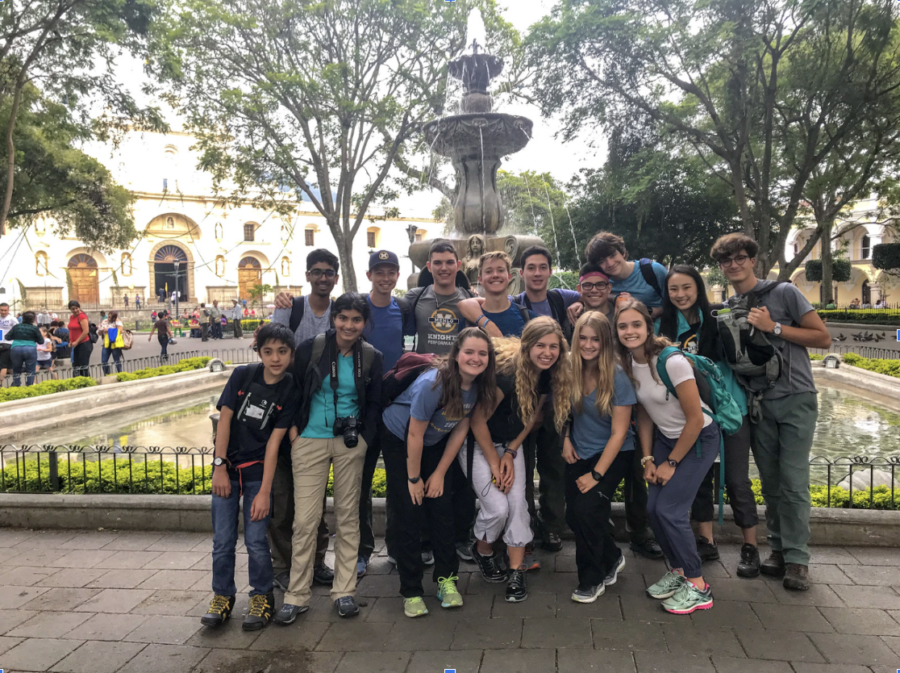After moving back to the U.S. in March of 2022 after spending 11 years studying in Hong Kong, I’ve been surprised by some of the biased things my fellow Menlo students say about China. For example, I was talking with a friend the other day who made a comment about how Chinese people can’t handle new technology. My friend is not an unkind or ignorant person, but his comment does reveal a larger problem I’ve observed at Menlo: how little we know about other cultures.
Thanks to my extensive time spent in Hong Kong, I for one know that the Chinese are perfectly capable of adapting to advanced technology. Throughout my life, living in two countries has consistently taught me the educational value of cross-cultural experiences. I’ve learned that many international schools require students to study abroad as part of their curriculum, and I strongly believe that Menlo should do the same. This decision would allow students to experience diverse cultures, issues and traditions, and to cultivate the spirit of global awareness.
According to a 2010 study from Columbia Business School professor Adam Galinsky, travel “increases awareness of underlying connections and associations” with other cultures, exposing students to a wider range of perspectives. Many of us subconsciously foster various stereotypes and biases, such as my friend’s belief that Chinese people have a tendency to lag behind technologically. If he were to travel there, he would be able to appreciate and witness how technology is actually advancing and how ordinary people use it in innovative ways every day. Citizens enjoy sophisticated payment methods, such as Wechat Pay and Alipay, while internet companies like Bytedance, the parent of the wildly popular TikTok in the US, enrich lives not only in China, but around the world, as well.
This study abroad experience should be a full semester because it would significantly help Menlo students learn about other countries and cultures. Peter Brown, an Upper School History teacher and Global Programs Director, thinks that it’s a valuable experience. “ It presents the potential to immerse in a different environment and to learn from direct experience,” Brown said. This is crucial, because the issues other nations face are often different from those we face in the U.S. For instance, the recent World Population Review shows the poverty rate in Central Africa at 62%. Considering the background and experiences of myself and many of my classmates, this statistic may seem almost incomprehensible to many of us. Study abroad programs such as those offered at UC Berkeley could directly connect Menlo students to educational volunteer opportunities, giving us a chance to make a difference in disaster relief centers and the developing world. In addition, Brown believes that through these opportunities, students can “experience and learn other ways of learning and being in the world.” Specifically, he explained the different aspects of culture one can learn. “They have the opportunity to learn and practice new knowledge, skills, and languages,” Brown said. Menlo can design its study abroad program along the lines of this program, where students have the opportunity to study in different countries globally, with the objective of broadening their cultural knowledge, such as learning new languages, stepping out of their comfort zone, and trying to make friends with different people.
Community service is already a requirement at Menlo; why not make volunteering abroad an option? Although some Menlo students frequently travel, most do so for pleasure rather than service, and tourism can only offer a narrow perspective. Understandably, some students might not be able to financially afford these options. However, Menlo has always been understanding when it comes to financial aid options. In fact, the Menlo abroad program that is 3 weeks long offers financial aid and after the recent success of the Menlo auction I am confident that sponsorships and donations can be worked out.
Even though I have already studied in two countries, I would still welcome opportunities and experiences in the world beyond my normal school environment. I firmly believe that a week of international volunteer work and cross-cultural education should be required at least once for every Upper School student. To succeed, we need cultural awareness, humility, and understanding.

